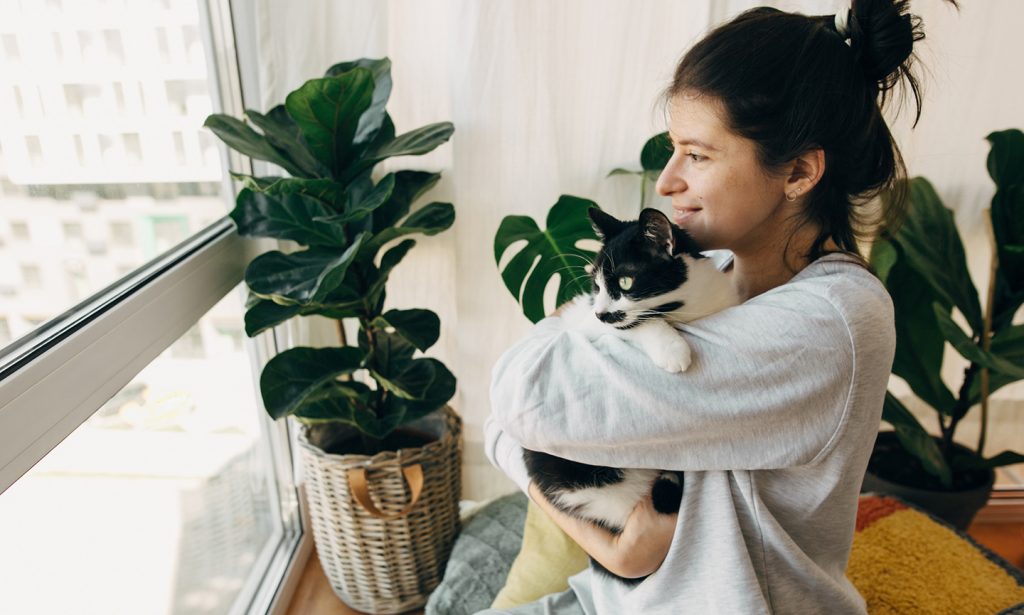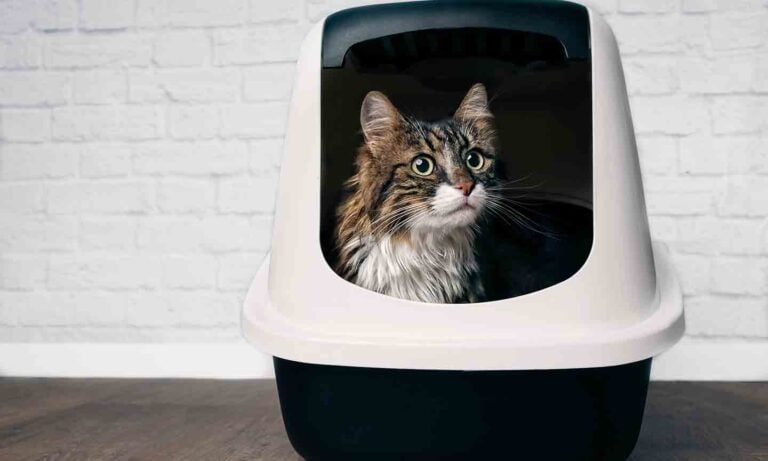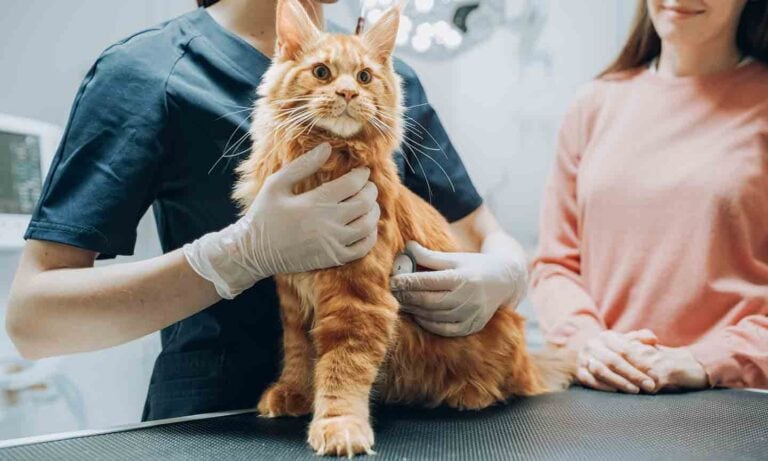Can my dog or cat catch the COVID-19 virus?
What happens if a dog or cat gets COVID-19?
Pets with COVID-19 may or may not get sick. And of the pets who have gotten sick, most only had mild illness and fully recovered with supportive care, per the CDC. Serious illness in pets is extremely rare (thank goodness!).
Pets with COVID-19 may experience the following symptoms:
- Fever
- Coughing
- Difficulty breathing or shortness of breath
- Lethargy (unusual lack of energy or sluggishness)
- Sneezing
- Runny nose
- Eye discharge
- Vomiting
- Diarrhea
-
What do I do if my pet gets ill?
If your pet is sick and you think it might be COVID-19: Talk to your veterinarian.
If you are sick with COVID-19 and your pet becomes sick: Don't take your pet to the veterinary clinic yourself. (You're sick, remember?) Instead, call your veterinarian and let them know you tested positive for COVID-19. Some veterinarians may offer telemedicine consultations or other plans for treating sick pets.
Can I catch COVID-19 from my pet?
The risk of animals spreading COVID-19 to people is considered low, the CDC reports, and there is no evidence that animals play a significant role in spreading the virus. People are much more likely to get COVID-19 from other people than from animals.
“There have been a few reports of infected mammalian animals spreading the virus to people during close contact, but this is rare,” the CDC states. “These cases include farmed mink in Europe and the United States, white-tailed deer in Canada, pet hamsters in Hong Kong and a cat in Thailand. In most of these cases, the animals were known to be first infected by a person who had COVID-19.”
Can my dog or cat spread the COVID-19 virus?
Can you be with pets if you have COVID-19?
Can pets carry the COVID-19 virus on their hair?
While certain bacteria and fungi are known to be present on the skin and hair of animals, there is no evidence that viruses, including the virus that causes COVID-19, can be spread via contact with hair or fur.
However, because animals can carry other germs that can sicken people, it’s still best practice to wash hands after petting, snuggling or playing with your pet.
Should I keep my dog away from other people and/or dogs on our walks?
With the recent resurgence of influenza, respiratory syncytial virus (RSV) and COVID-19 variants, it is recommended that people avoid places where large numbers of dogs and people gather, like dog parks, at this time.
Walking your pets is still recommended and is important for your pet’s health. On your next walk, it's recommended that you:
- Walk on a leash no longer than 6 feet to engage in social distancing.
- Avoid contact between other dogs and people along the way.
- Do not pet other people’s dogs and avoid having them touch your pets.
If you do choose to attend a dog park gathering, it is recommended that you:
- Wear a mask.
- Don’t let your dog share communal objects such as balls and water bowls.
- Practice proper hygiene (hand washing, decontamination of paws, etc.) upon returning home.
Is it safe to adopt shelter pets?
There is little evidence at this time that pets can transmit COVID-19, and that goes for shelter pets, too.
It is always a wonderful time to adopt or foster a pet! Some shelters may have reduced hours or staff, and many are desperately seeking fosters and adopters to move the pets out of the shelters. So, visit your local shelter today or check out Chewy’s Adoptable Pets page to search for adoptable pets near you.

About the Expert
Dr. Katy Nelson is Chewy’s resident veterinarian and associate veterinarian at the Belle Haven Animal Medical Centre in Alexandria, VA. A proud mom to six (two humans, two dogs and two birds), a lover of travel and a dedicated animal rescue advocate, Dr. Nelson still carves out time for family, friends and numerous charitable organizations in the D.C. area and beyond.
More on Pets and COVID, the flu and more:
Share:













